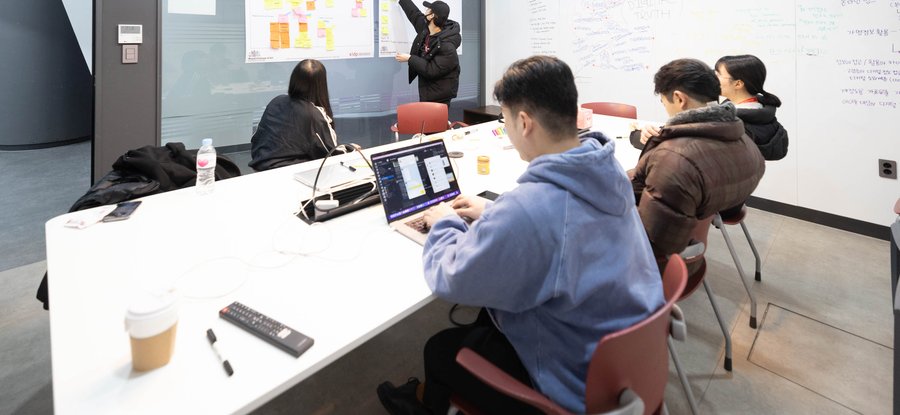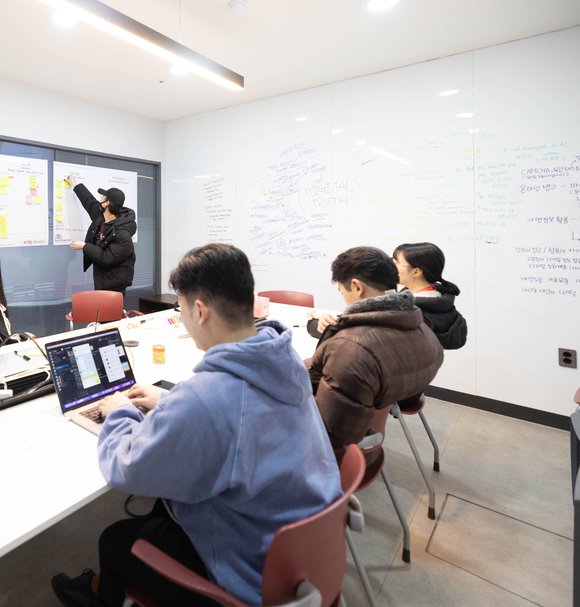Key details
Date
- 18 May 2023
Author
- Professor Ashley Hall
Read time
- 5 minutes
Professor Ashley Hall, Postgraduate Research Lead in the School of Design and Head of Programme for the MRes Healthcare Design, considers how designers can contribute to a better future.
“Design has an inescapable relationship with technology both for good and bad. There are few professions that can bring so much havoc, joy, disappointment or delight with a few swift lines from a pencil or clicks from a mouse.”
Postgraduate Research Lead School of Design, Head of Programme MRes Healthcare Design
Design has an inescapable relationship with technology both for good and bad. There are few professions that can bring so much havoc, joy, disappointment or delight with a few swift lines from a pencil or clicks from a mouse.
On the one hand design has democratised access to information and education for a huge part of the world’s populations, and helped pioneer major medical and healthcare breakthroughs. On the other it has been a partner in driving climate change by accelerating fast moving consumer goods and triggering fashionable product lust in consumers. Our behaviours have been shaped both for and by technology as marketing shifts our perceptions, desires and values.

Professor Ashley Hall presents at RCA-KiDP Global Design Workshop: Emerging Technology Futures, February 2023, Seoul, South Korea
Design at a crossroads for change
“New forms of prospective design are needed to help us look deeper into the future and steer ourselves rather than becoming victims of fate.”
Postgraduate Research Lead School of Design, Head of Programme MRes Healthcare Design
We’re now at a crossroads and have some serious choices to make in deciding what to do next. We have economies, pension funds and living standards to support, yet we also need major shifts in energy use, travel and circular living.
New forms of prospective design are needed to help us look deeper into the future and steer ourselves rather than becoming victims of fate. Climate change and net zero is also now an increasing concern for all citizens and corporations, with Korea having the world’s highest public understanding of climate change.
We need to renovate our industrial skills and methods but also design deeper into systems and move beyond traditional ‘design for industry’ models. We need to partner with governments, new enterprises and international agencies to achieve bigger scales of change.

RCA-KiDP Global Design Workshop: Emerging Technology Futures, February 2023, Seoul, South Korea
Designing the future we all want
“A new generation of designers are beginning to develop ambitious and highly creative responses to the challenges we face”
Postgraduate Research Lead School of Design, Head of Programme MRes Healthcare Design
It’s not all bad news and major global issues. A new generation of designers are beginning to develop ambitious and highly creative responses to the challenges we face, helping us to ‘design the future we all want’ while avoiding the darker possibilities.
We see designers confidently exploring ideas that work, and some that fail, using ideas from dematerialising design through to circular economy, design justice and regenerative design where our solutions can accelerate de-pollution and restore energy balance on land, air and the sea.
For design led companies this represents an enormous opportunity for cleaner, cheaper, leaner and more healthy products where technology is an essential part of the equation. Developing products and services that not only satisfy consumers but also regenerate and renovate the quality of cities, rivers, seas and countryside while earning carbon credits and enhancing species diversity in a booming new economy.

RCA Grand Challenge 2023.Regenerative Design: Insoluble Solutions is a filtration system that attracts and captures jellyfish from the estuary at Marchwood, Hampshire, extracting their mucus and collecting microplastics from the water (Xiaoyi Ye (Design Products), Xinyu Liu (Fashion), Ziwen Niu (Textiles), Tegan Mills (Service Design)
A designer’s responsibility
“What are the current ‘product’ limits that we need to break for improving future design impact that is socially and environmentally aware?”
Postgraduate Research Lead School of Design, Head of Programme MRes Healthcare Design
To address some of these issues, the RCA developed a five day workshop delivered by myself and Dr Delfina Fantini von Ditmar with KiDP (Korea Institute for Design Promotion) focussing on the question: ‘How can we bring together state-of-the-art future methods to deliver more successful technology emergence to address global challenges?’
The workshop was framed as a safe space to learn new skills, methods, thinking and concepts. It encouraged testing, experimentation, failure and trying out new ideas and approaches. Innovation in product design should not be driven purely for the sake of technology. The workshop highlighted designers’ responsibility to address social, environmental and health challenges.
What are the current ‘product’ limits that we need to break for improving future design impact that is socially and environmentally aware? In this context, what sort of new strategic design tools do we need to develop to design for societies and new behaviours? What design assumptions should we be questioning? How can we understand the morals, ethics and values of future populations that will use products designed today?
These are some of the top questions the next generations of practising designers are being asked.

RCA-KiDP Global Design Workshop: Emerging Technology Futures, February 2023, Seoul, South Korea
Defining a better life through design
“It’s not about technology, it’s about us.”
Postgraduate Research Lead School of Design, Head of Programme MRes Healthcare Design
In the bigger picture, designers are already supporting new initiatives in service design, material science, design experience and design-led innovation that can better prepare communities for climate resilience. Underneath all of this we need to remember that humans are motivated by happiness, celebration and success. It’s not about technology, it’s about us. We need to find those positive enabling attitudes for technology emergence.
Ultimately we have to question what we mean by a better life: ‘I want my children to have a better life’, but who decides, and what constitutes better? A bigger house, car, holidays, clothes and gadgets don’t seem to have made us any happier, in fact the opposite.
The big opportunity for emerging technology is to be less seen, less present and less in the way of something truly better. Feeling better.

RCA-KiDP Global Design Workshop: Emerging Technology Futures, February 2023, Seoul, South Korea
The five day custom workshop for KiDP was delivered by RCA Executive Education. Find out more about the project and our Custom Executive Education offer here.

